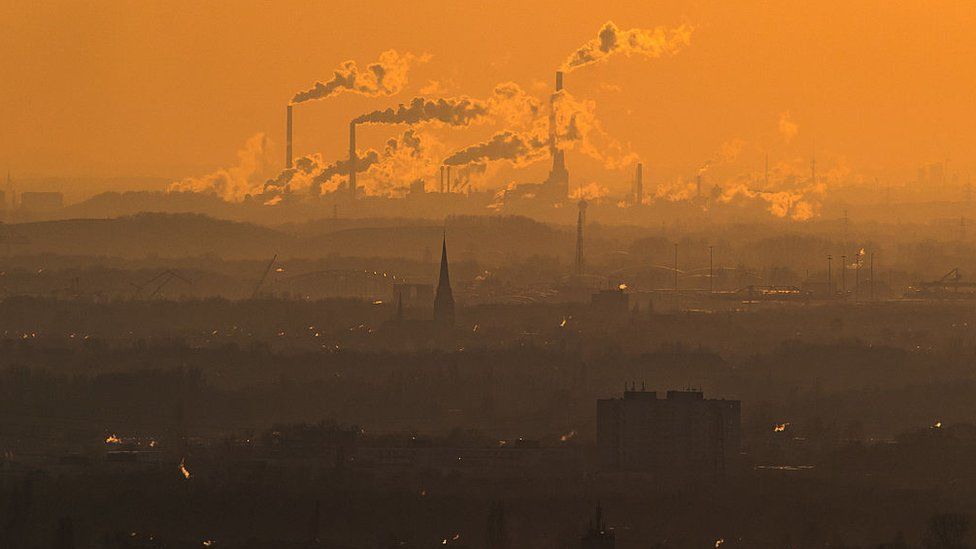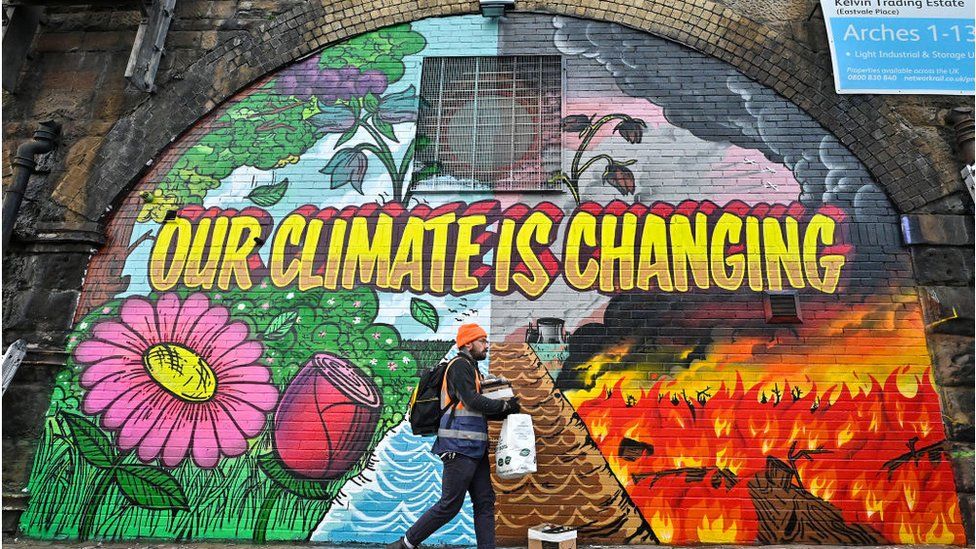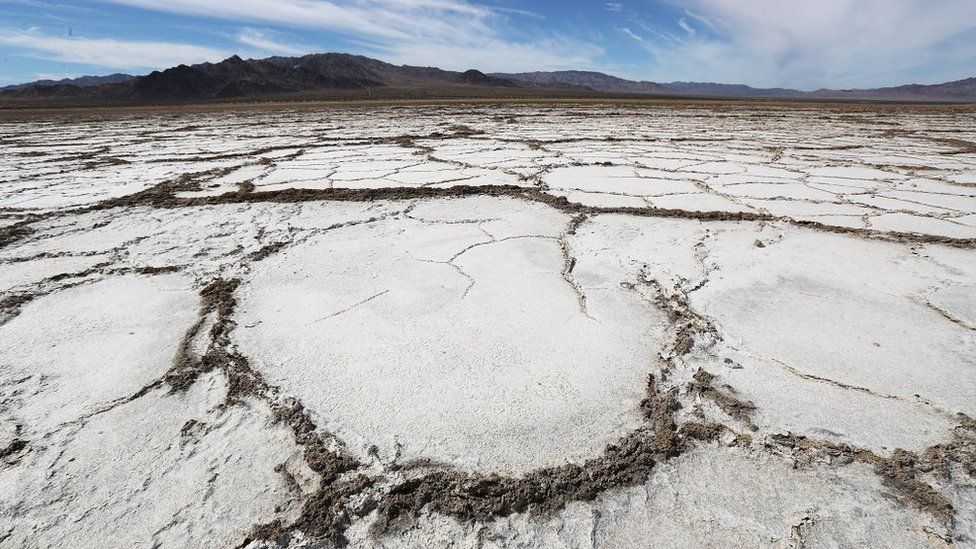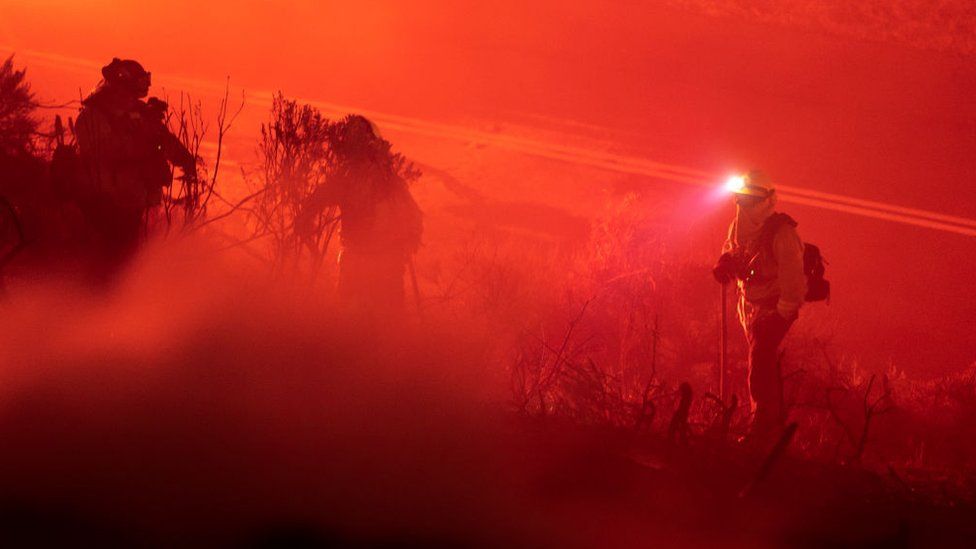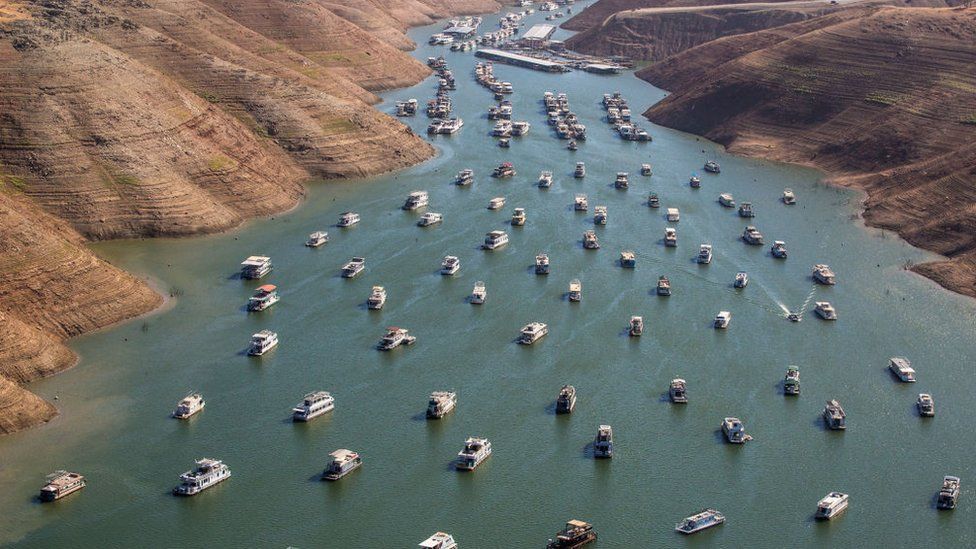Australia has copped a barrage of criticism in global headlines as world leaders and the press react to Scott Morrison’s net zero plan.
Prime Minister Scott Morrison has rejected criticism from David Attenborough and a tech billionaire over Australia’s climate change policy.
|
Net Zero Plan at a glance
|
Mr Morrison on Tuesday outlined his plan to reach net zero emissions by 2050 ahead of the major trip to the UN climate summit, using a late-night interview to reject concerns the government has broken a promise not to increase climate targets.
Under the plan, more than $20 billion will be invested in low emissions technologies including carbon capture and storage.
The Prime Minister also unveiled new projections, which if reached, could see Australia reduce emissions by 30 to 35 per cent by 2030.
But there are concerns. The modelling, which supports the plan, will not be released until a later, unspecified date.
Australian billionaire Mike Cannon-Brookes hit out at the government’s commitment, calling it “just more bulls**t”.
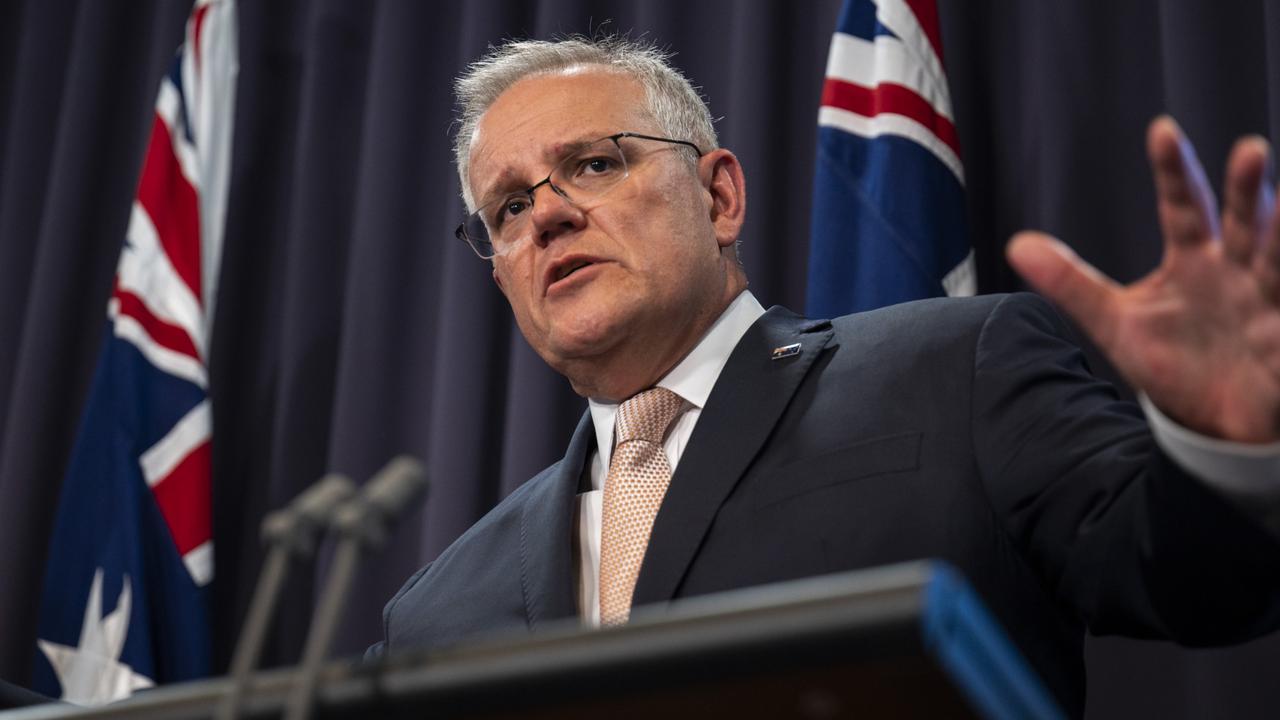
|
|
Prime Minister Scott Morrison.
Picture: NCA NewsWire / Martin Ollman |
In the UK, Prime Minister Boris Johnson congratulated Australia for joining “a growing club” and said he was looking forward to “welcoming” Mr Morrison in days at the highly publicised global climate change summit, COP26, in Glasgow. Australia had “earlier refused” to join Johnson and others to pledge the targets.
The EU Commissioner’s Executive Vice-President Valdis Dombrovskis also called it a “positive signal”.
Great to see Australia commit to reach net zero by 2050. They join a growing club - over 80% of the global economy is now committed to net zero.
I look forward to welcoming @ScottMorrisonMP to Glasgow next week to deliver a successful @COP26.
— Boris Johnson (@BorisJohnson) October 26, 2021
But for the most part, the news wasn’t good. The Evening Standard focused largely on the fact Australia “won’t end coal production” and “will not legislate the goal and instead rely on consumers and companies to drive emission reductions”.Our new #EUTrade strategy has sustainability at its core, including working with #G20 partners to achieve climate neutrality.
— Valdis Dombrovskis (@VDombrovskis) October 26, 2021
I therefore welcome the announcement by Australia to commit to net zero emissions by 2050.
Positive signal for #COP26 & for broader 🇪🇺-🇦🇺trade.
Australia was also criticised in numerous publications for being one of the world’s largest emitters of greenhouse gases “on a per capita basis”.
The Inquirer described the nation as “long under fire as one of world’s top producers of coal and gas” and the Financial Times said Australia remains “wedded to fossil fuels”.
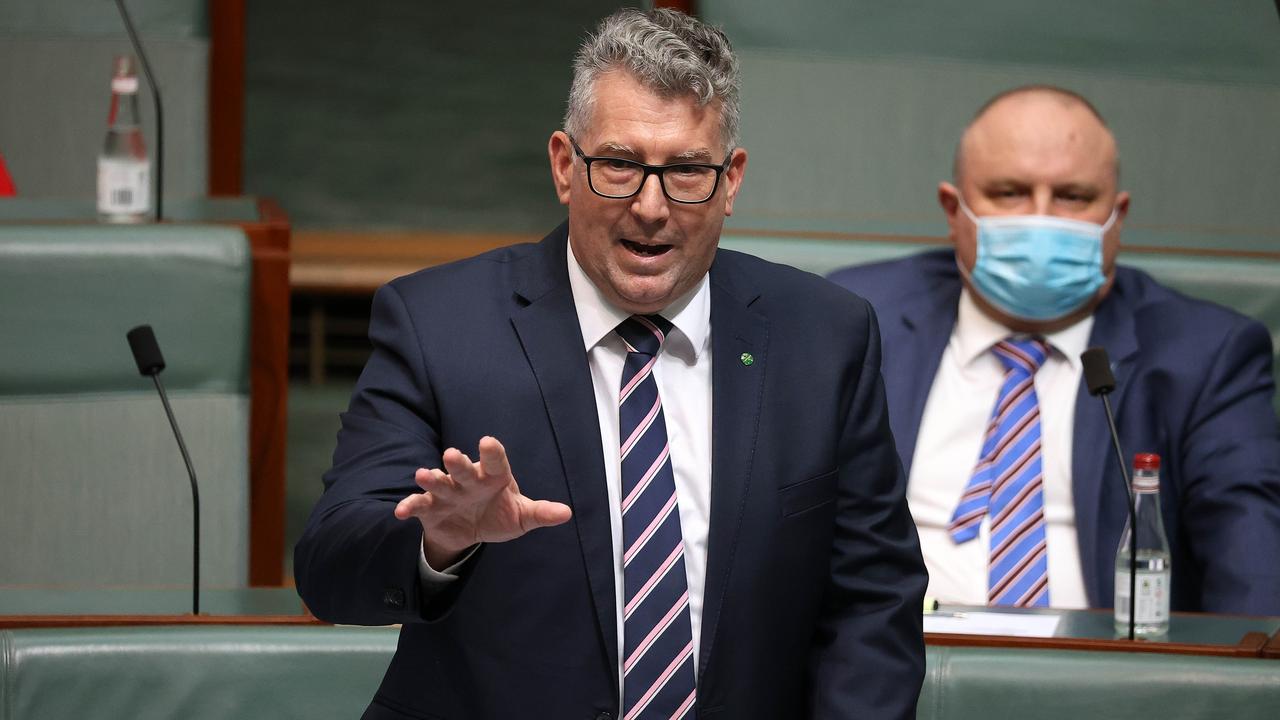
|
|
Keith Pitt was also called out. Picture: NCA NewsWire / Gary Ramage |

Across in the United States, the New York Times said Australia’s “last-minute commitment” was “built on hope for new technology, and little else”.
CNN said Mr Morrison was “begrudgingly rolling out the weakest climate pledge of the world’s richest countries” and called out MP Keith Pitt, who won a cabinet position under the prime minister’s climate deal with the Nationals after leader Barnaby Joyce demanded a spot.
The Washington Post joined the chorus, claiming Australia “bowed to growing domestic and international pressure”.
“The nation is on the front lines of global warming, with popular support for swifter action surging after devastating bush fires early last year,” reporter Michael E. Miller wrote.
The Indian Express also deemed the net zero announcement “relatively late”, comparing it to New Zealand’s commitment back in 2019.
Meanwhile the BBC reported overnight Australia had been “widely criticised” for its ambiguous targets.
“It’s immensely frustrating, I don’t expect we’ll be getting much kudos at all in Glasgow,” Doctor Simon Bradshaw, Head of Research at the Climate Council, told BBC Radio.
“It’s been very clear from the UK, the Biden administration, certainly from our neighbours in the Pacific that they expect a lot more Australia.”
Doctor Bradshaw also appeared on CNBC in the US, urging Australia to “accelerate action now”.
Scott Morrison says "you're not the boss of me" while begrudgingly rolling out the weakest climate pledge of the world's richest countries.https://t.co/ZdMo8SOLbC
— Bill Weir (@BillWeirCNN) October 26, 2021
Australia's last-minute commitment before next week’s climate summit in Glasgow is built on hope for new technology, and little else.https://t.co/JfNb9diYys
— NYT Climate (@nytclimate) October 26, 2021
Critics called Australia's plan to reach net-zero emissions by 2050 too vague and technology-focused to be believed — little more than an attempt to add marketing buzz to the status quo of delay and continued support for fossil fuels. https://t.co/WC90o3hv27 by @damiencaveMeanwhile, Liberal MP and Assistant Minister for Industry Energy and Emissions Tim Wilson appeared in a searing interview with the BBC where he proclaimed “we are going to do this the Australian way”.
— New York Times World (@nytimesworld) October 26, 2021
The BBC’s Razia Iqbal ”roasted” Mr Wilson, claiming Australia “is not a responsible player on the international stage” and that the country falls “far, far behind all other developed countries when it comes to … a commitment to ending the dependency on fossil fuels”.
Mr Wilson slammed the claims as false.
Coal-rich Australia unveils a much-delayed 2050 net zero emissions target, but shies away from setting near-term goals ahead of a landmark UN climate summit pic.twitter.com/fEjlzRK5At
— TRT World Now (@TRTWorldNow) October 25, 2021
BRISBANE (AUSTRALIA) - Coal-rich Australia unveiled a much-delayed 2050 net zero emissions target Tuesday, but shied away from setting more ambitious goals ahead of a landmark UN climate summit. #BangkokPost #World https://t.co/7Dp3Qf14a3“It’s quite clear the government has not set any ambitious targets for 2030 which is a major objective for the global summit in Glasgow,” Iqbal questioned.
— Bangkok Post (@BangkokPostNews) October 26, 2021
Mr Wilson said: “We’re going to do this the Australian way and make sure that we do things with the trust of the Australian people.
“It’s absolutely true, we’re not going to burn the village to save it. We know that coal doesn’t have a stronger future and so what we’re doing is laying the foundations and building new industries so Australia can be a renewable energy superpower.
“Other countries can talk big, the planet only cares about what you actually cut your emission.”
Over on the ABC, Energy Minister Angus Taylor appeared unable to name a single new emissions reduction policy contained in the Morrison government’s climate change “plan” during an interview on Tuesday night.
We just delivered a comprehensive plan to take Australia to carbon neutrality with a target of net zero by 2050. It’s a uniquely Australian plan using technology, not taxes, keeps cutting emissions, protects jobs and builds Australia’s economic future: https://t.co/MAdLHbVoCgDavid Attenborough takes aim at Australia
— Tim Wilson MP (@TimWilsonMP) October 26, 2021
Mr Morrison’s plan was unveiled hours after environmentalist David Attenborough took aim at Australia’s performance on climate change.
Attenborough was among the first to mention Australia directly in a warning ahead of the COP26 summit in Glasgow, which Scott Morrison will attend.
In his comments, which came before the PM’s plan was announced, Attenborough took aim at “people in Australia” who claimed dramatic climate change events, including fires, were a “one-off”.

|
| British broadcaster David Attenborough had some harsh words for Australia. Picture: Yui Mok / AFP |
Attenborough, speaking with the BBC’s David Shukman for his new series, The Green Planet, said people have a “moral responsibility” and outcomes could be “really catastrophic” if we don’t act fast.
“What climate scientists have been saying for 20 years, and that we have been reporting upon, you and I both, is the case – we were not causing false alarms,” he said.
“And every day that goes by in which we don’t do something about it is a day wasted. And things are being made worse.
“There are still people in North America, there are still people in Australia who say ‘no, no, no, no, of course it’s very unfortunate that there was that forest fire that absolutely demolished, incinerated that village, but it’s a one-off’.
“Particularly if it’s going to cost money in the short term, the temptation is to deny the problem and pretend it’s not there.
“But every month that passes, it becomes more and more incontrovertible, the changes to the planet that we are responsible for that are having these devastating effects.”
British naturalist Sir David Attenborough warned world leaders it would be too late to tackle climate change if #COP26 does not succeed. He said the richer nations had a moral responsibility to act https://t.co/08DrMq2bs7 pic.twitter.com/0eUbPkJkbQ
— Reuters (@Reuters) October 26, 2021
Links
- What we eat could change under net zero
- Billionaire slams ‘embarrassing’ plan
- Your energy bills under net zero
- (AU BBC) Climate Change: Australia Pledges Net Zero Emissions By 2050
- (AU ABC) Government Promises To Cut Emissions To Reach Net Zero By 2050 Under New Climate Change Plan
- (AU Climate Council) Half Baked: Net Zero Announcement Missing Rapid Emission Cuts
- Why Australia refuses to give up coal
- Climate action is still hotly contested in Australia
- Australia's big miners have already left the government behind on climate change
- (AU AFR) Australia’s Business Leaders Tell PM How To Hit Net Zero By 2050

